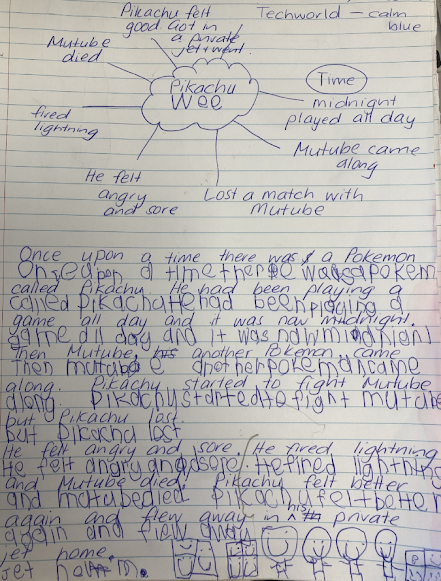2022 is my 5th year of teaching. It has been a huge learning curve after my 12 months of studying to be a teacher. Over this time in classrooms, I am becoming increasingly interested in learning issues my ākonga face.
My cohort I teach is year 5 & 6. At this level students "should" be able to read well enough to access the curriculum and do learning in more subject areas. Their comprehension of what they are reading is vital for them to be able to learn about more complex ideas and their writing should be able to demonstrate that knowledge.
This year I have several students whose writing is several years below what is expected of the average student at this level. Handwriting is poor, construction of sentences are weak and even copying down text is difficult. Their reading is slightly behind, but is not of major concern and they understand clearly what they are reading. I am finding it difficult to consistently differentiate my teaching whereby what I am expecting of them to "create" to demonstrate mastery of the knowledge is within their abilities.
What is going on?
There are three tamariki that fall into this group.
- One is a selective mute and will not talk to many adults.
- One has a lot of absences put down to anxiety by his whānau. He is also easily distracted.
- One has also had a lot of absences, and is a big procrastinator who needs constant reminders to do his work.
- Two fall outside the level required to do an asttle writing assessment and one is level 1 beginning).
- Maths levels are sitting at Stage 3 to 4 depending on the area. Fractions are proving very difficult to grasp and then retain.
- All have very poor handwriting and find it hard to type words. They have had varying success with speech to text with Google docs.
- All play on devices at home although not extensively. They are very capable on devices at home.
- They are all unable to form letters on a consistent basis in their writing. They find it difficult to write on the line/between the lines. They have nearly normal grips.
- The two students I can talk to are embarrassed about their work and what they can achieve. They won't let others view their handwritten work and are bright enough to see that even their digital work is not as good as the rest of the classes. It is heartbreaking.
My hunch is that they may have some level of dysgraphia. I stumbled across the term and read about its manifestations in tamariki and feel that it may be involved in the process I am seeing in these children.
My inquiry question: If these tamariki have dysgraphia or similar, what can I do as a classroom teacher to better support them in their work to better access the "create" portion of our mahi and to help them in alternative ways to demonstrate to me their learning? This is way too wordy!
First of all I need to get better educated on what dysgraphia is. I need to talk to their whānau to get information from them and I need to get some screening done to see if this is in fact the issue. If it isn't, I will have re-look at my inquiry question and move from there. If it is, what practical steps can I take for these students to help them? What differentiation in assessment (ie work created) can I put in so they can clearly demonstrate how amazing they are?
If I can get this differentiation in place at a better level for them, I should see them grow in confidence and create work that they are proud of and which shows everyone how they understand what they are reading and learning about.
Now to work on what dysgraphia is and getting screening in place.
Example of one child's writing:



